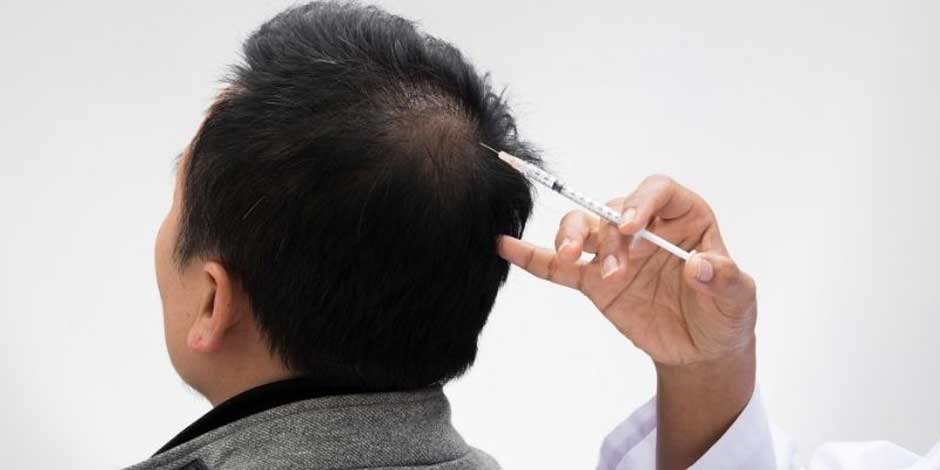A lush, full head of hair symbolises vitality and confidence for many people. However, the journey to regaining lost hair can often feel like navigating a labyrinth of hair regrowth solutions, each promising miraculous result.
Amid this sea of options available in your local area, for example, in Australia at Transitions Hair in Sydney, it’s crucial to distinguish between products backed by scientific evidence and those that are merely riding the wave of marketing hype. This comprehensive guide will delve deep into the key ingredients that have been rigorously tested and proven to promote hair growth, helping you make informed decisions about your hair regrowth journey.
Minoxidil: The Gold Standard
Minoxidil is one of the most widely recognised and FDA-approved ingredients for treating androgenic alopecia, commonly known as male or female pattern baldness. Interestingly, minoxidil’s discovery as a hair growth aid was serendipitous. Originally developed as an oral treatment for hypertension, its unexpected side effect was the stimulation of hair growth.
Minoxidil is typically available in over-the-counter topical solutions or foams. It works by prolonging the growth phase of hair follicles and increasing blood flow to the scalp, thereby promoting hair regrowth. Consistency in its application is paramount, as discontinuation can lead to a reversal of its benefits.
Finasteride: Taming the Hormonal Culprit
Another FDA-approved medication, finasteride, is an oral prescription drug initially designed to treat prostate enlargement. Its mechanism of action lies in inhibiting the enzyme responsible for converting testosterone to dihydrotestosterone (DHT), a hormone implicated in hair loss.
While finasteride is highly effective, it can come with potential side effects. Therefore, discussing its use with a healthcare professional before starting treatment is crucial.
Biotin: The B-Vitamin for Hair Health
Biotin, a water-soluble B vitamin, is pivotal in maintaining hair health. Although severe biotin deficiency is rare, many believe supplementing with biotin can improve hair strength and growth.
Biotin can be found in many hair growth supplements, but it can also be obtained through a well-rounded diet that includes foods like eggs, nuts, and whole grains.
Peppermint Oil: Nature’s Stimulant
A study published in the Toxicological Research journal in 2014 unveiled the potential of peppermint oil to boost hair growth. The research found that peppermint oil significantly increased hair growth in mice by increasing the number of follicles, follicle depth, and overall hair growth.
As a result, many hair growth products now incorporate peppermint oil for its potential benefits and refreshing scent. However, it’s essential to remember to dilute essential oils like peppermint with a carrier oil before direct scalp application.
Rosemary Oil: Nature’s Alternative to Minoxidil
Research suggests that rosemary oil could be as effective as minoxidil in promoting hair growth, with the added benefit of fewer side effects. Rosemary oil’s mechanism of action involves improving blood circulation and increasing cellular metabolism within hair follicles.
Like peppermint oil, rosemary oil should be diluted with a carrier oil before applying it to the scalp to avoid potential skin irritation.
Caffeine: A Boost for Your Hair Follicles
Caffeine, a common stimulant, has also found its way into hair care. When applied topically, caffeine can stimulate hair follicles, extending the life cycle of hair and encouraging healthy growth.
As a result, many shampoos and topical hair treatments now incorporate caffeine due to its stimulating properties.
Saw Palmetto: The Natural DHT Blocker
Saw palmetto, a plant extract, is often used to treat hair loss. It operates similarly to finasteride by blocking the 5-alpha-reductase enzyme responsible for converting testosterone to DHT.
Saw palmetto is available in various forms, including supplements, shampoos, and topical treatments. However, its efficacy and optimal dosage for hair growth are still under study, so it’s essential to use it under the guidance of a healthcare professional.
Niacin (Vitamin B3): Boosting Scalp Circulation
Niacin, also known as Vitamin B3, can improve blood circulation to the scalp and increase the density of hair follicles, promoting healthy hair growth.
Consuming niacin as part of a balanced diet or through supplements is one way to reap its benefits. Additionally, niacin can be found in topical hair treatments.
Castor Oil
Rich in ricinoleic acid, castor oil has gained popularity as a potential hair growth aid. It is believed to increase blood circulation to the scalp and balance scalp pH, creating an environment conducive to hair growth.
While many individuals swear by regular scalp massages using castor oil, it’s important to note that direct scientific evidence regarding its efficacy is limited.
Final Thoughts
In the quest for healthier, fuller hair, it’s crucial to remember that everyone’s hair journey is unique. Genetics, diet, stress, and overall health play significant roles in hair health and growth. While the abovementioned ingredients have shown promise in promoting hair growth, they should be considered part of a holistic approach.

